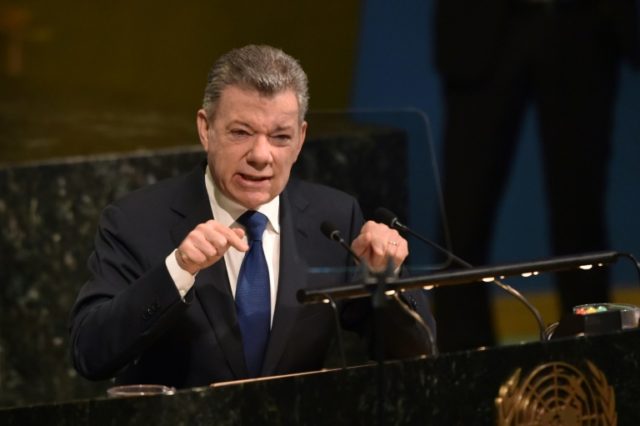Bogota (AFP) – Colombian President Juan Manuel Santos installed a truth commission on Tuesday to shed light on crimes committed during the country’s lengthy civil war, as agreed upon in a peace deal with the FARC guerrillas.
The commission will “help heal the wounds accumulated during more than 50 years of conflict,” Santos said during a ceremony at the presidential offices.
Even though the full truth of what happened during the internal war “will never be known,” the commission will seek to clarify “all the lies that are produced by 53 years of war,” he added.
The truth commission has 11 members — six women and five men — who were elected by representatives of the United Nations, the European Court of Human Rights, and members of the Colombian judicial system and the country’s government-run universities.
The members include sociologists, journalists, doctors, economists, attorneys and clerics. The commission is headed by a Jesuit priest, Francisco de Roux, known for his human rights work.
The task will be to “recognize victims from all sides, dignify victims as citizens and recognize collective, institutional responsibilities and the responsibilities of society as a whole through actions and omissions,” he said.
The Santos administration agreed to form the truth commission as part of the historic peace deal reached in 2016 with the Revolutionary Armed Forces of Colombia (FARC) guerrillas. The rebels agreed to surrender their weapons and become a political party of the same name.
The commission, which has no power to judge, has a three-year term starting in November. Every six months, it will issue a progress report, as well as a final report when their time is up.
“The victims often do not want reparations, what they want is the truth,” said Santos, who is due to step down in August after eight years in office.
Colombia’s five-decade conflict drew in leftist guerrillas, paramilitary groups and state forces in what became a many-sided war fueled by drug trafficking, leaving about 260,000 people dead and seven million displaced.

COMMENTS
Please let us know if you're having issues with commenting.